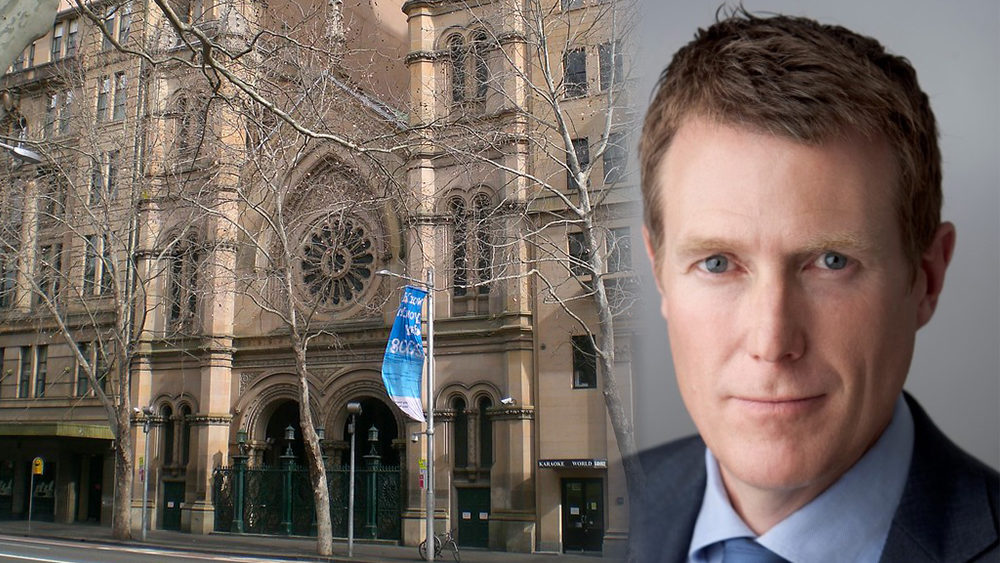The approach of a standard anti discrimination law, “a shield and not a sword” and a provision preventing “large employers from restricting religious expression” are major features of the Religious Discrimination Bill the Morrison Government is putting forward.
Anglican Bishop Michael Stead told Eternity that he was “pleasantly surprised” however as the draft bill contains improvements on the standard exemptions model. Stead was especially pleased that the bill says that an statement of religious belief does not constitute discrimination.
“The AG is likely to get frustration from both Christians and the LGBTIQ groups for pushing back the deadline of the Australian Law Reform Commission (ALRC) report,” Michael Kellahan of Freedom For Faith told Eternity. “It leaves the areas of greatest concern unresolved.” The ALRC reference has been amended to take this new bill into account as it examines the difficult issues of school enrolments and staffing. Further legislation will follow their report, removing the religious exemptions from the sex discrimination Act
The new bill maintains that right of a religious body to make determinations on questions of doctrines and beliefs, memberships, and its own premises. However this does not extend to commercial operations and aged care.
The AG summarised a number of cases where this bill would affect the outcome. The famous Archbishop Porteous case – where Tasmania’s Catholic leader was taken to the state’s Anti Discrimination Commissioner for stating Catholic belief on marriage would not be possible under this bill. The Queensland Baptist case regarding a complaint about an email to staff supporting traditional marriage would also not be sustained.
A “large employer like Rugby Australia” (with a turnover of over $50m) would have to prove they would suffer significant financial penalty in order to be able to restrict someone like Israel Folau’s religious expression outside of work. Porter said that RA would have to show financial damage to show that their rule was reasonable.
Complaints would go to the Human Rights Commission.
The “exposure draft” released today allows for comment by interested parties before the bill reaches Parliament. The main aim of the bill is to prevent discrimination on the basis of religious belief or affiliation.
“The government has endeavoured to understand the actual problems,” Attorney General Christian Porter told a gathering of key leaders of religious bodies and human rights campaign groups in Sydney’s Great Synagogue. “It is a fair summary to note that no religious group wants less protection in the criminal law.” He cited anti-semitic and islamophobia attacks, violence and vandalism.
“The types of concerns have been less about physical interference” but the “effect the effects of tribunals on teaching religious texts”, and the ability for families to decline their children attending school courses on sexuality.
The new bill follows “the standard three stages” of discrimination bills.
First defining an attribution to be protected – religious belief, or a lack of religious belief.
It then defines concept of discrimination, direct and indirect, and thirdly, the bill sets out categories of exemptions.
Speaking to legislating an standard anti discrimination bill. Porter commented “Rights are impossible to rank or contour. In real life people may disagree on when to draw the boundaries when rights collide.”
Hence he preferred this more detailed bill rather than a simple right.
“The bill does not prioritise religious rights over other rights. It does not enable hate speech or other vilification.
“Some people had not thought through a positive right approach. The conflict between elegantly drafted rights has to go some where. It has to be the courts.” Porter said that that approach would have led to policticising the courts.
A positive rights approach would would have unpredictable results. He cited the case of Hustler Magazine v Fallwell as an example of allowing highly defamatory material about a preacher to be published under the US’s “positive” rights approach.
Finding an “Australian balance” was emphasised by Porter in his introductory speech. “Properly appreciating the fundamental role religion plays for individuals is the starting point”.
“Free expression he argued will never be unlimited,” he said. “However less-religious people must exercise appreciation on how restrictions on religious expression appears to more religious Australians.”
One key section – Part 4 – states that “Statements of belief do not constitute discrimination for the purposes of any anti-discrimination law. This applies only if the statement is not “malicious” or “is likely to, harass, vilify or incite hatred or violence against another person or group of persons.” Or “counsel, promote, encourage or urge conduct that would 20 constitute a serious offence.”
A series of consultations on the bill start in Melbourne and Sydney next week.
The bill and the governments explanatory notes can be found here
Email This Story
Why not send this to a friend?



